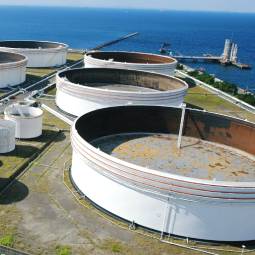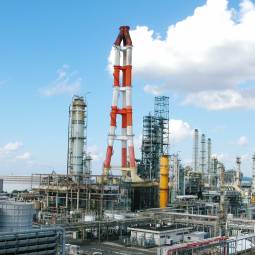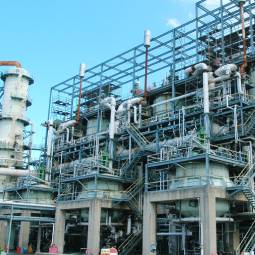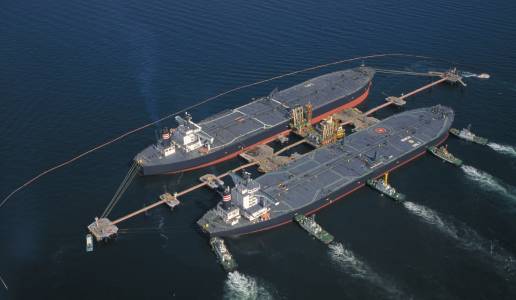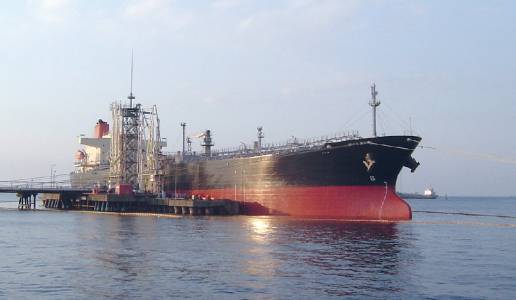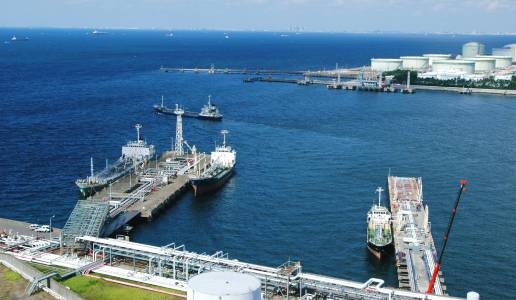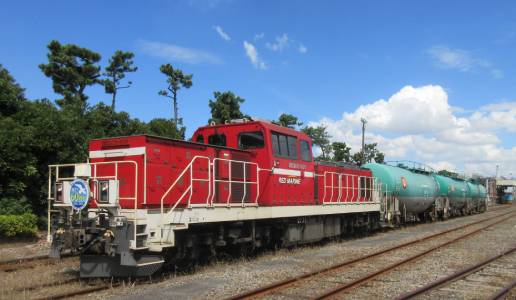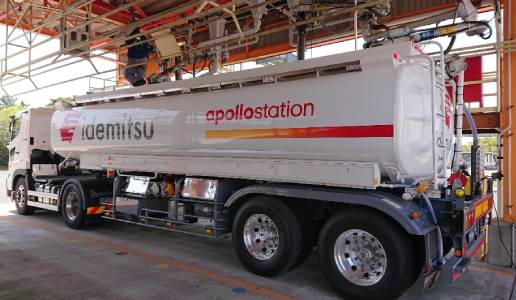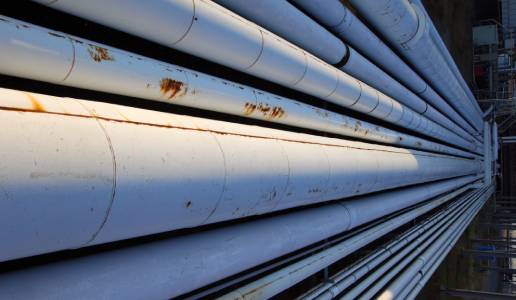Energy is vital to our way of life. Power generation, gasoline and other petroleum products all depend on crude oil, and Japan relies almost entirely on imports to meet its needs. At Fuji Oil, we handle some imports of petroleum products such as gasoline, kerosene and diesel fuel, but we essentially import crude oil from the Middle East and other regions and refine it into a range of petroleum products using proprietary technologies and facilities. In this section, we look at the key elements of our refining operations.
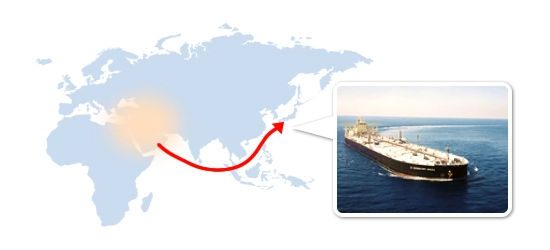
The Keiyo Sea Berth, located 7km offshore in Tokyo Bay, was built as a joint project by Fuji Oil and three other oil refining companies in the area. The sea berth can accommodate two large 300,000 DWT tankers at the same time. Crude oil imported by the tankers is unloaded at the berth and transported directly to our local refinery by underwater pipeline.
The Sodegaura Refinery also receives crude oil at its own dedicated landing pier, where tankers of up to 120,000 DWT can directly berth.
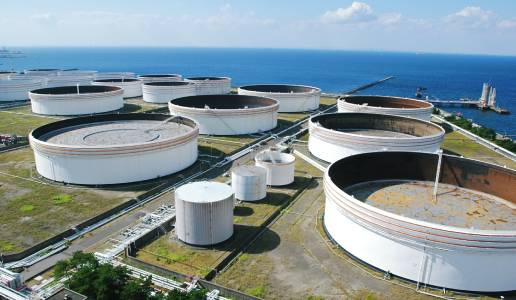
Imported crude oil is first transported to storage tanks, where it is held prior to refining.
Fuji Oil’s crude oil storage tanks and related facilities are some of the best in the domestic refining sector. Our storage capacity also compares well with other refining companies in Japan.
|
Refinery |
Facility |
Number |
Capacity (kL) |
|
Sodegaura Refinery |
Crude oil tanks |
15 |
1,146,200 |
|
*Slop tank |
1 |
3,200 |
|
|
Finished / semi-finished product tanks |
119 |
1,382,080 |
|
|
LPG tanks |
16 |
21,500 |
|
|
Home fuel oil tanks |
3 |
7,390 |
|
|
Subtotal |
154 |
2,560,370 |
|
|
Nakasode Crude Storage Base |
Crude oil tanks |
12 |
728,600 |
|
*Slop tank |
1 |
850 |
|
|
Subtotal |
13 |
729,450 |
|
|
Total |
167 |
3,289,820 |
|
*Note: The slop tank is used to store water that has been contaminated with oil.
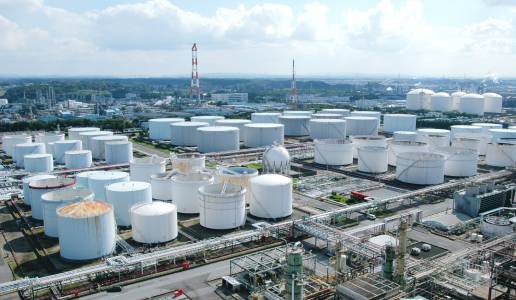
Crude oil is transformed into the petroleum products we use every day through a number of processes, including distillation, cracking and desulfurization. The products are then temporarily stored in separate tanks before being shipped.
Fuji Oil and other oil companies in Japan are required to hold 70 days worth of crude oil and petroleum product reserves in case of an emergency.
|
Product |
Main applications |
|
LPG |
Industrial-use propane gas, taxi fuel |
|
Gasoline |
Car fuel |
|
Petrochemical-use naphtha |
Feedstock for petrochemical products |
|
Benzene |
Feedstock for plastics |
|
Xylene |
Feedstock for synthetic resins |
|
Kerosene |
Fuel for household heating appliances |
|
Jet fuel |
Fuel for jet powered passenger aircraft |
|
Diesel fuel |
Bus and truck fuel |
|
Fuel oil A |
Building heating fuel, small ship fuel |
|
Fuel oil C |
Power plant fuel, large ship fuel |
|
Petroleum pitch |
Feedstock for coke used to make steel, boiler fuel |
Petroleum products created from the refining and production processes are delivered to clients throughout Japan by sea, rail, road and pipeline. We also export our products to overseas clients.


